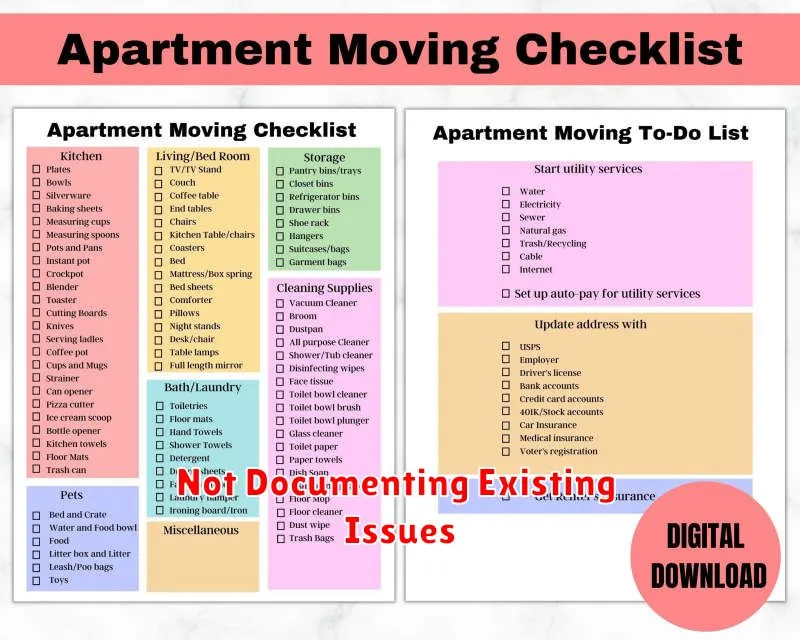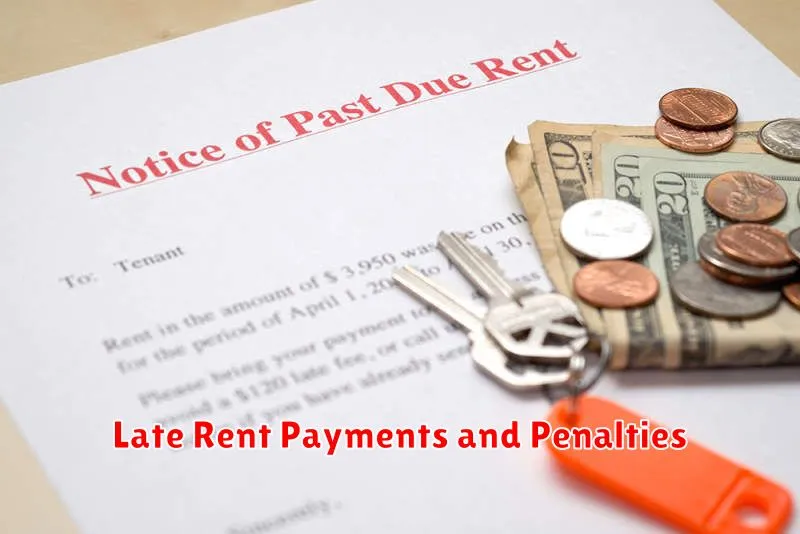Renting a property can be an exciting new chapter, but it’s crucial to be aware of common pitfalls that can lead to frustration and financial strain. Many renters, especially first-timers, unknowingly make mistakes that can impact their security deposit, their relationship with their landlord, and even their ability to rent in the future. This article will explore some of the most common mistakes renters make, providing valuable insights and practical advice on how to avoid rental pitfalls and ensure a smooth and positive renting experience. Understanding your rights and responsibilities as a tenant is paramount to navigating the rental process successfully.
From neglecting to thoroughly read the lease agreement to overlooking crucial details during the move-in inspection, these oversights can have significant consequences. We will delve into common issues such as failing to document existing damage, neglecting necessary maintenance, and misunderstanding the terms of the lease. By learning how to avoid these common rental mistakes, you can protect yourself financially and maintain a positive relationship with your landlord. This guide will offer proactive strategies to ensure a stress-free rental experience, empowering you to become a savvy renter and enjoy your rented space to the fullest.
Not Reading the Lease Thoroughly
One of the most common and costly mistakes renters make is not thoroughly reading their lease agreement before signing. A lease is a legally binding contract, and not understanding its terms can lead to unexpected expenses, disputes with the landlord, and even eviction.
Take the time to carefully review every clause, including details about rent payments, late fees, maintenance responsibilities, pet policies, and lease duration. If anything is unclear, ask the landlord for clarification before signing. Understanding your rights and responsibilities is crucial for a positive rental experience.
Key areas to pay close attention to include:
- Lease Term and Renewal Options
- Rent Amount and Due Date
- Security Deposit and Return Policy
- Allowed and Prohibited Activities
- Maintenance Responsibilities
Skipping Apartment Inspection
One of the biggest mistakes renters make is skipping the initial apartment inspection. This crucial step protects you from being held responsible for pre-existing damage. Document everything. Note any imperfections, from chipped paint to malfunctioning appliances.
Use your phone or camera to take photos and videos. A detailed record will serve as proof of the apartment’s condition when you moved in. This documentation can be invaluable if disputes arise later concerning your security deposit.
Ignoring Renters Insurance
One of the most common and costly mistakes renters make is neglecting to purchase renters insurance. Many assume their landlord’s insurance covers their belongings, which is incorrect. A landlord’s policy protects the building’s structure, not the renter’s personal property.
Renters insurance provides crucial financial protection against losses due to theft, fire, water damage, and other covered perils. It also provides liability coverage in case someone is injured in your rental unit. The cost of renters insurance is relatively low compared to the potential financial devastation of replacing all your possessions.
Don’t underestimate the value of your belongings. Take an inventory of your possessions to understand the coverage amount you need. Even seemingly inexpensive items add up quickly. Consider replacement cost coverage, which pays to replace your belongings with new items of similar kind and quality, rather than actual cash value coverage, which factors in depreciation.
Not Documenting Existing Issues

A crucial step when moving into a new rental is to thoroughly document any existing issues. Failing to do so can lead to disputes later on regarding security deposits and liability for repairs.
Upon move-in, carefully inspect the property for any damage, no matter how small. This includes chipped paint, stained carpets, malfunctioning appliances, and existing plumbing problems. Take clear photos or videos of everything and compile a written report detailing each issue.
Submit this documentation to your landlord or property manager promptly, ideally within the first few days of your tenancy. This protects you by establishing a record of the property’s condition before you moved in, preventing you from being held responsible for pre-existing problems. This proactive step can save you significant time, money, and stress in the long run.
Failing to Understand Deposit Terms
One common mistake renters make is not fully understanding the terms of their security deposit. Thoroughly read your lease agreement to understand what constitutes normal wear and tear versus damage. This will help avoid disputes when you move out.
Document the condition of the property upon move-in with photos and videos. This documentation serves as crucial evidence of the property’s pre-existing condition. Note any existing damage and bring it to the landlord’s attention immediately.
Understand the timeframe for deposit return as stipulated in your lease. Be aware of your rights regarding disputing deductions and the process for doing so.
Not Knowing Local Tenant Laws
Tenant laws vary significantly by location, covering aspects like lease agreements, security deposits, and eviction procedures. Ignorance of these laws can leave renters vulnerable to exploitation or put them at a disadvantage should disputes arise.
It’s crucial to research your local tenant laws before signing any lease. Understanding your rights and responsibilities protects you from unfair practices and helps ensure a smooth tenancy. Knowing the specifics of local ordinances can be instrumental in resolving disagreements with landlords effectively.
Assuming All Utilities Are Included
A common misstep renters make is assuming utilities are included in the monthly rent. Always clarify which utilities are covered and which are your responsibility. Landlords are required to disclose this information.
Failing to confirm utility responsibilities can lead to unexpected expenses. While some landlords include utilities like water or trash removal, others may include none. Carefully review your lease agreement for specifics regarding electricity, gas, water, sewage, trash, and internet.
Asking the landlord directly about average utility costs for the unit can help you budget appropriately. This proactive approach can prevent financial surprises and contribute to a smoother rental experience.
Late Rent Payments and Penalties

Paying rent late is a common mistake that can have significant repercussions. Always prioritize rent payments to avoid incurring penalties and damaging your credit score.
Penalties for late rent vary depending on your lease agreement and local laws. Some landlords impose a flat fee, while others charge a percentage of the overdue rent. Continual late payments can even lead to eviction.
Understand your lease agreement thoroughly. It outlines the grace period, if any, and the penalties for late payments. Set up reminders or automatic payments to ensure timely rent payment. If you anticipate difficulty paying rent, communicate with your landlord proactively. They may be willing to work with you to establish a payment plan.
Underestimating Move-In Costs
One frequent oversight renters make is underestimating the initial costs associated with moving into a new place. Beyond the first month’s rent, there are often additional expenses that can strain your budget if not properly accounted for.
Security deposits are commonplace, often equaling one or two months’ rent. Application fees, background checks, and pet deposits can also add up quickly. Moving expenses, such as renting a truck or hiring movers, should also be factored into your budget.
Utility connection fees for services like electricity, gas, and internet can be surprisingly expensive. Finally, don’t forget to budget for initial grocery shopping and other essential household items you may need for your new home.
Forgetting to Ask About Maintenance
A critical oversight many renters make is neglecting to inquire about maintenance procedures and responsibilities. Understanding who is responsible for what, and how repairs are handled, can save you significant stress and potentially money down the line.
Be sure to ask your landlord or property manager: Who is the contact person for maintenance issues? What is the typical response time for repairs? Are there any specific maintenance tasks you, as the tenant, are responsible for? Having clear answers to these questions upfront can prevent misunderstandings and frustrations later in your tenancy.

